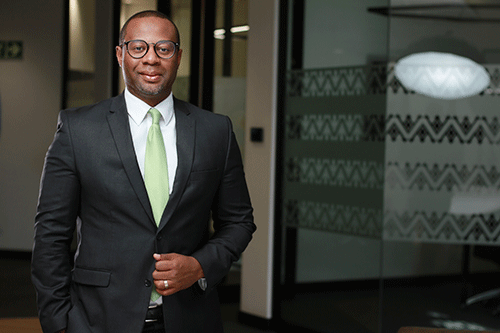The newly-inaugurated Nedbank campus had a set mission to uplift local companies during the construction phase. Out of N$440 million in the value for the project’s contracts, N$429 million was spent on Namibian-owned companies.
This means that 97% of the total contract value was delivered by Namibian-owned companies. Nedbank spokesperson Selma Kaulinge stated that about 886 610.8 man hours were spent on the construction of the campus. The budget for the building was N$485 million, and created 310 direct and 930 indirect jobs.
About 500 Nedbank staff who were previously housed at four different locations moved into the new campus between December 2021 and Feb 2022. The work space design allows for an inclusive culture which encourages engagement, collaboration and innovation. The campus has some unique features, such as 45.5% less water and energy consumption.
According to Kaulinge, the Nedbank campus building design has achieved a five-star green star design rating by the Green Building Council of South Africa, who performed the rating on behalf of the Green Building Council of Namibia.
“The design team then submitted the as-built documentation to the Green Building Council in April 2022. This is to obtain an as-built rating, which is based on what was actually constructed as opposed to the design. If Nedbank obtains this rating, it will be the first newly-built six-star building in the country, and the only one in the Nedbank Group,” she enthused.
At the inauguration, Nedbank Namibia managing director Martha Murorua noted that with a more supportive environment assisting them greatly, Nedbank achieved a faster-than-expected rebound of a low base when they announced 2021 financial results in March 2022, with headline earnings showing growth of over 75%.
Capital recovery remained in a strong position at 16.7% at the end of March 2022, while net interest income rebounded upwards by 6%.
“We pride ourselves in contributing to funding residential property to the value of more than N$5 billion, and close to N$6 billion funding into key projects which will improve the livelihoods of many Namibians,” said Murorua.
She added that this state-of-the art building will help advance digital strategy to heed to the call of improving financial inclusion.
At the same occasion, Terence Sibiya, Nedbank Africa regional managing executive ,said the importance of the finance sector in supporting and driving a just transition has been steadily increasing, given that the sector’s capital allocation decisions determine the shape of future economies.
“Fulfilling this role responsibly will see the sector reducing investment in harmful industries, while speeding up the transition to a sustainable economy through vehicles such as green bonds and sustainability-linked bonds. This approach means the radical acceleration in sustainable finance activity. Recognising this imperative, many financial services’ institutions have committed to net-zero journeys and pledged to deliver much-needed funding for not only climate mitigation and adaptation solutions, but also with sustainable development imperatives,” he observed.
Sibiya added that banks play a crucial role in facilitating economic activity and enabling sustainable growth and development by moving capital from where it is to where it is more required.



